Chapter 6 Judicial Power
Article 91
In the Republic of Armenia justice shall be administered solely by the courts in accordance with the Constitution and the laws.
In cases prescribed by law, trials are held with the participation of a jury.
Article 92
The Courts of general jurisdiction in the Republic of Armenia shall be the courts of first instance, the review courts and the court of appeals.
In the Republic of Armenia, there shall also be economic, military and other courts as may be provided by law.
The establishment of extraordinary courts is prohibited.
Article 93
Sentences, verdicts and decisions entered into legal force may be reviewed by the court of appeals based on appeals filed by the Prosecutor General, his or her deputies, or specially licensed lawyers registered with the court of appeals.
Article 94
The President of the Republic shall be the guarantor of the independence of the judicial bodies. He or she shall preside over the Judicial Council.
The Minister of Justice and the Prosecutor General shall be the vice presidents of the Council.
The Council shall include fourteen members appointed by the President of the Republic for a period of five years, including two legal scholars, nine judges and three prosecutors.
Three Council members shall be appointed each from among the judges of the courts of first instance, the courts of review and the court of appeals. The general assembly of judges shall submit three candidates by secret ballot for each seat allocated to judges.
The Prosecutor General shall submit the names of candidates for the prosecutors’ seats in the Council.
Article 95
The Judicial Council:
1) Shall, upon the recommendation of the Minister of Justice, draft and submit for the approval of the President of the Republic the annual list of judges, in view of their competence and professional advancement, which shall be used as the basis for appointments.
2) Shall, upon the recommendation of the Prosecutor General, draft and submit for the approval of the President of the Republic the annual list of prosecutors, in view of their competence and professional advancement, which shall be used as the basis for appointments.
3) Shall propose candidates for the presidency of the court of appeals, the presidency and judgeship positions of its chambers, the presidency of the courts of review, courts of first instance and other courts. It shall make recommendations about the other judicial candidates proposed by the Ministry of Justice;
4) Shall make recommendations regarding the candidates for Deputy Prosecutor proposed by the Prosecutor General, and the candidates for prosecutors heading operational divisions in the Office of the Prosecutor.
5) Shall make recommendations regarding training programs for judges and prosecutors;
6) Shall make recommendations regarding the removal from office of a judge, the arrest of a judge, and the initiation of administrative or criminal proceedings through the judicial process against a judge;
7) Shall take disciplinary action against judges. The president of the court of appeals shall chair the meetings of the Judicial Council when the Council is considering disciplinary action against a judge. The President of the Republic, the Minister of Justice and the Prosecutor General shall not take part in these meetings;
8) Shall express its opinion on issues of pardons when requested by the President of the Republic.
The operational procedures of the Judicial Council shall be prescribed by law.
Article 96
Judges and members of the Constitutional Court are appointed for life. A judge may hold office until the age of 65, while a member of the Constitutional Court may do so until the age of 70. They may be removed from office only in accordance with the Constitution and the laws.
Article 97
When administering justice, judges and members of the Constitutional Court shall be independent and may only be subject to the law.
The guarantees for the exercise of their duties and the grounds and procedures of the legal responsibility applicable to judges and members of the Constitutional Court shall be prescribed by law.
Article 98
Judges and members of the Constitutional Court may not hold any other public office, nor engage in any other paid occupation, except for scientific, educational and creative work.
Judges and members of the Constitutional Court may not be members of any political party nor engage in any political activity.
Article 99
The Constitutional Court shall be composed of nine members, five of whom shall be appointed by the National Assembly and four by the President of the Republic.
Article 100
The Constitutional Court, in accordance with the law:
1) Shall decide on whether the laws, the resolutions of the National Assembly, the orders and decrees of the President of the Republic and the resolutions of Government are in conformity with the Constitution;
2) Shall decide, prior to the ratification of an international treaty, whether the obligations assumed therein are in conformity with the Constitution;
3) Shall rule on disputes concerning referenda and the results of presidential and parliamentary elections;
4) Shall ascertain the existence of insurmountable obstacles facing a presidential candidate or the elimination of such obstacles;
5) Shall determine whether there are grounds for the removal of the President of the Republic;
6) Shall determine whether there are grounds for the application of Sections 13 and 14 of Article 55 of the Constitution;
7) Shall determine whether the President of the Republic is incapable of continuing to perform his or her functions;
8) Shall determine whether there are grounds for the removal of a member of the Constitutional Court, his or her arrest or initiation of administrative or criminal proceedings through the judicial process:
9) Shall decide on the suspension or prohibition of a political party in cases prescribed by law.
Article 101
The Constitutional Court may hear cases submitted by:
1) The President of the Republic;
2) At least one third of the Deputies;
3) Presidential and parliamentary candidates on disputes concerning election results;
4) The Government in cases prescribed by Article 59 of the Constitution.
The Constitutional Court shall only hear cases that have been properly submitted.
Article 102
The Constitutional Court shall render its decisions and findings no later than thirty days after a case has been filed.
The decisions of the Constitutional Court shall be final, may not be subject to review and shall enter into legal force upon their publication.
The Constitutional Court shall decide with a majority vote of its total number of members on matters pertaining to Sections I through 4 of Article 100 of the Constitution, and with a vote of two thirds of its members on matters pertaining to Sections 5 through 9 of Article 100.
Article 103
The Office of the Prosecutor General in the Republic of Armenia represents a unified, centralized system, headed by the Prosecutor General.
The Office of the Prosecutor General:
1) Shall initiate criminal prosecutions in cases prescribed by law and in accordance with procedures provided by law;
2) Shall oversee the legality of preliminary inquiries and investigations;
3) Shall present the case for the prosecution in court;
4) Shall bring actions in court to defend the interests of the state;
5) Shall appeal the judgments, verdicts and decisions of the courts:
6) Shall oversee the execution of sentences and other sanctions.
The Office of the Prosecutor General shall operate within the powers granted to it by the Constitution and on the basis of the law on the Office of the Prosecution.



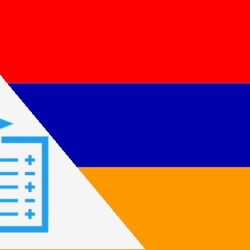
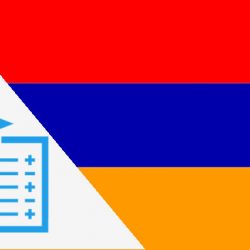
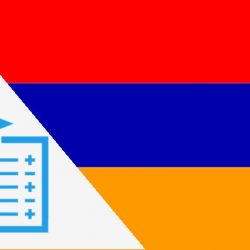
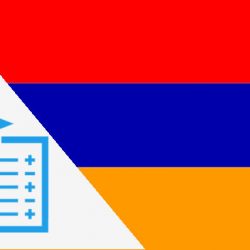
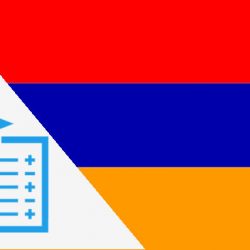
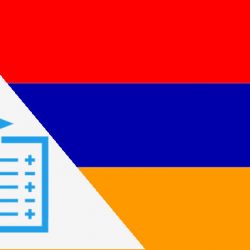
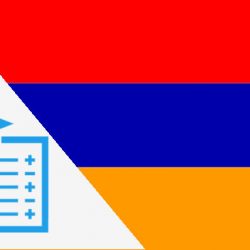
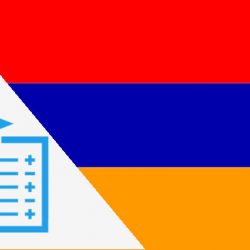
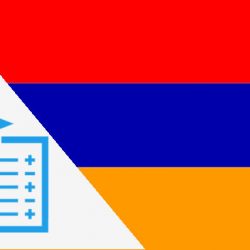
 We will not leak your personal information
We will not leak your personal information